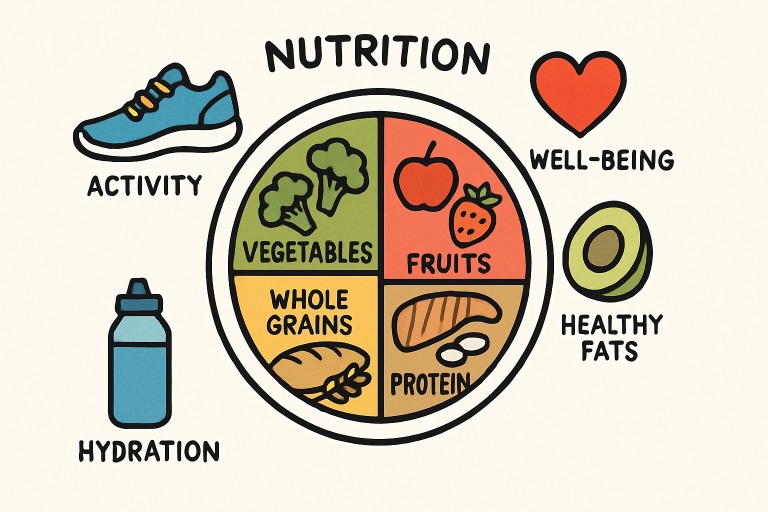Simple Science-Backed Strategies for Sustainable Weight Management
Achieving and sustaining a healthy weight is a journey, not a sprint. Fad diets, extreme exercise regimens, and unrealistic expectations can lead to disappointment and burnout. Instead, focusing on science-backed strategies helps create lasting habits that support long-term well-being. Whether you’re just starting your journey or looking to maintain your progress, there are straightforward approaches that work for nearly everyone. For local support and understanding how personalized guidance can make a difference, explore weight loss Charlottesville as a supportive resource for your wellness journey.
Building meaningful, sustainable habits is simpler when the focus is on achievable, research-supported steps. Learning how to set attainable goals, balance nutrition, stay active, and maintain a positive mindset can transform the process and improve your odds of success. Here’s a comprehensive look at the key elements behind effective weight management for long-lasting results.
Setting Realistic Goals for Lasting Results
Lasting change starts with practical expectations. Aiming for a modest weight loss of 5–10% of your total body weight over several months is recommended by experts, including the Centers for Disease Control and Prevention (CDC). Setting smaller milestones—like adjusting portion sizes or adding a few minutes of walking each day—supports progress and minimizes burnout. Avoiding the pressure of rapid, unsustainable results helps foster a healthier relationship with food and your body.
It’s also helpful to reframe goals in terms of behaviors, rather than just outcomes. Rather than focusing solely on the number on the scale, track habits such as increasing your daily intake of vegetables, drinking more water, or going for regular walks. These positive, actionable steps deliver results that last well beyond the initial enthusiasm.
Balancing Nutrition Without the Confusion
Nutritional advice can sometimes seem confusing, but the basics remain unchanged. Fill your plate with a range of colorful vegetables, fruits, whole grains, lean proteins, and healthy fats. Limiting added sugars, fried foods, and highly processed snacks is consistently supported by research for both weight regulation and overall health.
Simple tools can help make healthy eating easier. For example, the MyPlate guidelines provide a visual representation of balanced meals, breaking down food groups into easy-to-understand portions. Focus on consistency with your eating habits instead of obsessing over temporary food trends, as this approach provides a sustainable foundation for both losing and maintaining weight.
Incorporating Physical Activity Into Daily Life
Physical activity is a core component of weight management and overall health, but it does not require a gym membership or hours of intense workouts. The World Health Organization recommends 150 minutes of moderate-intensity activity per week for adults, which could include brisk walking, cycling, swimming, gardening, or even dancing around the house.
Making movement a regular, enjoyable part of daily life increases the likelihood of sticking with it. Opt for activities you genuinely enjoy and look for ways to make them convenient—such as walking during a lunch break, taking the stairs, or scheduling “active time” with family or friends. Small, consistent efforts add up and support lasting change.
Prioritizing Mental Well-Being in Weight Management
Mental health and emotional well-being often play a crucial yet often overlooked role in successful weight management. Stress, anxiety, and negative self-talk can stall progress or even trigger setbacks. Incorporating strategies such as mindfulness meditation, journaling, deep breathing exercises, and establishing a regular sleep schedule can make a positive difference.
Seeking help when needed—whether from a mental health professional, supportive friends, or group counseling—removes the sense of isolation that often accompanies lifestyle change.
Tracking Progress Effectively
Monitoring your journey is about self-awareness, not perfection. Uncomplicated methods, such as keeping a food diary, noting daily habits, or using a wearable fitness tracker, can provide valuable feedback. Regular check-ins—such as weekly weigh-ins, step counts, or body measurements—help you recognize progress and identify areas for adjustment.
Celebrate every small success, whether it’s a week of preparing home-cooked meals or an extra walk around the block. Over time, these positive reinforcements create lasting motivation and more sustainable results.
Leveraging Community and Support Networks
No one needs to pursue better health alone. Sharing your goals and progress with friends, family, or structured community groups leads to greater accountability, encouragement, and a sense of belonging. Support can take many forms, including check-ins with a workout partner, joining local walking clubs, participating in online forums, or engaging in wellness challenges.
Research increasingly shows that people who cultivate strong support networks have higher success rates and are more likely to maintain healthy changes over the long term. Building a system of encouragement and accountability fosters resilience, making the journey more enjoyable.
Long-Term Maintenance Tips for a Healthier Lifestyle
Sustaining positive change requires flexibility, self-compassion, and adaptability. Plan for setbacks and don’t be discouraged by occasional slips or fluctuations in weight. Focus on daily and weekly routines, such as meal planning, preparing healthy snacks, scheduling favorite physical activities in your calendar, and practicing strategies for navigating social situations.
Remember, the most successful approaches emphasize developing lifelong habits rather than relying on temporary fixes. By integrating positive behaviors over time—and seeking inspiration and support when needed—you can enjoy better health and greater well-being for years to come.
Sustainable Steps for Lifelong Health
Achieving and maintaining a healthy weight is less about quick fixes and more about consistent, realistic, and well-supported habits. By setting achievable goals, balancing nutrition, incorporating enjoyable physical activity, and prioritizing mental well-being, you create a foundation for lasting change. Tracking progress, celebrating small victories, and leveraging community support further strengthen your efforts. Ultimately, focusing on sustainable, science-backed strategies rather than fad diets or extreme routines empowers you to make gradual improvements that last a lifetime.







